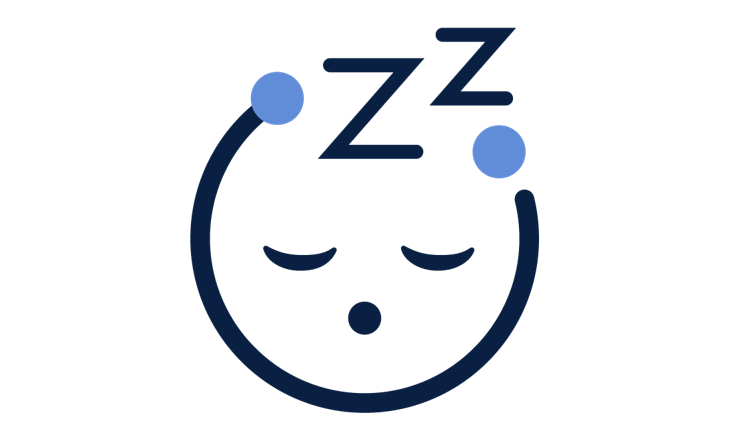Mind Numbers helps provide freedom and safety for people living with mental illness
Over 8 million Americans live with bipolar disorder.
Managing your health shouldn't feel like a full-time job. Mind Numbers simplifies tracking the factors that influence your wellness, delivering personalized insights tailored to your bipolar journey.
Take control, gain clarity, and focus on living your best life.
Mind Numbers: Your Wellness, Simplified –
Sleep, Activity, Routine
We’ve integrated the latest science on bipolar disorder with a powerful algorithm to provide personalized insights based on your sleep, physical activity, and routine. These insights help you understand how your behaviors affect your condition, giving you the tools you need to manage your health more effectively. For people with bipolar disorder, phones and sensors are invaluable in tracking key metrics to stay balanced. Mind Numbers automatically gathers data from your phone and sleep sensors, so you can focus on living your life with confidence and control.
-

Sleep
Sleep is essential for everyone, but for those with bipolar disorder, it plays a critical role in mood stability. Disrupted sleep can signal the onset of mania, while oversleeping often points to depression. Research highlights that even one night of poor sleep can trigger manic episodes, emphasizing the need for consistent, high-quality rest. Mind Numbers helps you monitor sleep duration, quality, and consistency using advanced tools, bridging the gap between subjective reporting and objective data. Studies show that inaccuracies in self-reported sleep duration are linked to lower functioning in people with bipolar disorder, underscoring the importance of reliable tracking. By identifying patterns and discrepancies in sleep, Mind Numbers empowers you to address early warning signs and maintain balance, supporting both your mental and physical wellness.
-

Activity
Staying active is a key component of managing bipolar disorder, improving both mental and physical health. Regular exercise can reduce depressive symptoms, lower the risk of episodes, and help manage health risks like heart disease. Even small, consistent activities—like walking or yoga—can make a meaningful difference. However, self-reported physical activity, historically the most common tracking method, is less reliable than objective measures like accelerometry. Mind Numbers leverages tools that objectively monitor daily movement, resting heart rate, and heart rate variability, providing a comprehensive picture of your activity and its impact on your wellness. By tracking these metrics, you can identify patterns and subtle changes that might signal an approaching mood episode, empowering you to stay proactive and in control.
-

Routine
For those with bipolar disorder, a stable routine is crucial for managing mood and energy levels. Disruptions in your body’s natural rhythm, like irregular sleep or activity patterns, can trigger episodes. Maintaining consistency—especially with sleep and daily habits—helps stabilize your circadian rhythm and prevent mood swings. Mind Numbers uses tools like sleep sensors and activity tracking to monitor variations in your routine, helping you stay balanced and in sync, even when life gets busy.
How can Mind Numbers help you?
We have integrated the science on bipolar and designed an algorithm that can generate personalized insights based on your sleep, physical activity and routine. These insights will allow you to understand better how your behaviors impact your bipolar disorder and give you the information you need to manage your health more effectively.
For people with bipolar disorder, phones and sensors are powerful tools that can help monitor your health and keep you balanced. Mind Numbers gathers the data from your phone and sleep sensors automatically, so you can focus on living your life.
*Monitoring Sleep:* Sleep patterns are a big deal when it comes to managing bipolar disorder. Sensors with sleep tracking capabilities can show you how long you’re sleeping, the quality of your sleep, and even how consistent your sleep schedule is. Since disrupted sleep can signal a potential hypomanic, manic or depressive episode, tracking sleep gives you the chance to spot issues before they turn into bigger problems. You can see patterns in your sleep that you might not notice on your own, helping you keep things stable.
*Tracking Physical Activity:* Phones can track your daily movement, for example steps, so you can have a clear picture of how active you’ve been throughout the day. Since regular exercise is so important for managing bipolar disorder—helping to reduce depressive symptoms and stabilize mood—tracking how much you’re moving can help make sure you’re hitting your goals. If your activity levels drop off, it could be a sign that you need to adjust your routine or check in with your healthcare provider.
*Keeping Routines Consistent:* When life gets busy, your phone and a sleep sensor can help monitor variations, so you can balance your routine. A consistent routine can help prevent mood swings, since regular routines are key for keeping your circadian rhythm (your internal body clock) in sync.
Interested to learn more?
Our app will passively measure mood & speech, sleep, activity and routine.
Mind Numbers will generate insights so that you can get on with living well with bipolar disorder.
